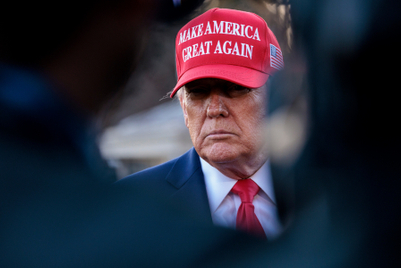
Donald Trump’s recent visit to Asia was one dramatic illustration of the very evident polarization going on around the world. In cultures reputed for careful choice of language, conveying respect with civility and taking a long-term view, he hurled personal insults, changed his mind as often as his ties, and didn’t so much take to the world stage as put his feet through it.
By his own standards, of course, the visit was hailed as a triumph of measured diplomacy and it seems weirdly difficult, less than a year into this noisy Presidency, to remember a time when standards were very different indeed. The world has certainly changed—and a lot of people, like it or not, think that it is changing for the better. Globalization is on the retreat, “local” or “national” is sacrosanct.
Undeniably the world of brands has also changed. In major developed markets around the world, big brands are finding it hard to grow and this is being reflected in the published results of household name companies. There is no scientific reason why big brands can’t grow, but their relevance is being supplanted by more “local” and niche appeal brands. People want to know who’s made what they are using and what’s in what they’re using. Conventional shopping channels are also being challenged by more nimble and convenient technologies. The marketing world order as we knew it is as hard to remember as Barack Obama’s kinder and more thoughtful political tones.
Big brands are in a quandary. They can’t pull back from mass marketing and the techniques that made them seem less relevant and contemporary as this would risk conceding their key competitive advantage—reach, which keeps awareness alive among people who currently consider them. But, without significantly increasing their budgets, how can they also reinvent themselves with the kind of disruptive “local” appeal which fuels their competition?
Big brands are crying out for a new model of marketing. And while companies try to figure it out, the “big agency” system which depends on them, as well as the investors who have other places to put their money, get increasingly impatient.
 James Thompson is chief marketing and innovation officer for Diageo North America. James Thompson is chief marketing and innovation officer for Diageo North America. |


.jpg&h=334&w=500&q=100&v=20250320&c=1)


.png&h=334&w=500&q=100&v=20250320&c=1)





.png&h=334&w=500&q=100&v=20250320&c=1)


.jpg&h=268&w=401&q=100&v=20250320&c=1)




